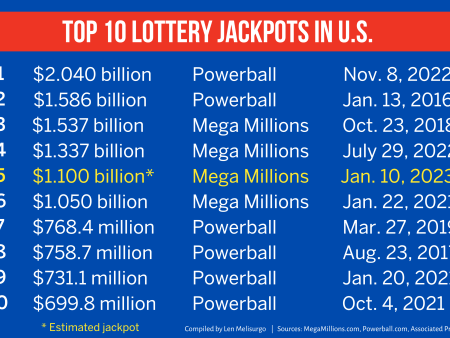Most lottery ticket purchases are final, but exceptions exist. Act quickly, check terms, and contact customer service for potential refunds. Rules vary by jurisdiction. Top Ten Lottery
Can I Cancel My Lottery Ticket Purchase? A Comprehensive Guide to Lottery Ticket Refunds
Can I Cancel My Lottery Ticket Purchase? A Comprehensive Guide to Lottery Ticket Refunds
Can I Cancel My Lottery Ticket Purchase?” This is a question that often arises after the excitement of buying a lottery ticket subsides. Whether it’s due to second thoughts, a change of heart, or simply an error in the purchase, many people find themselves wondering if they can reverse their decision. Navigating the policies and rules surrounding lottery ticket refunds can be confusing, as they vary widely depending on the lottery operator and jurisdiction. In this comprehensive guide, we will explore the possibilities and limitations of cancelling a lottery ticket purchase, providing you with all the information you need to understand your options and make informed decisions.
When it comes to understanding lottery ticket purchase policies, it’s crucial to know that each lottery operator and jurisdiction may have different rules. Generally, most lottery tickets are considered final sales, meaning once you buy a ticket, you cannot cancel or get a refund. This policy is in place to maintain the integrity of the game and prevent any potential manipulation or fraud. However, there are exceptions depending on where you live and the specific lottery you’re participating in. Always check the terms and conditions provided by your local lottery authority before making a purchase.
For online lottery ticket purchases, some platforms might offer a short window during which you can cancel your order if you made an error or changed your mind. This is less common in physical ticket sales but worth investigating if you’re buying online. Make sure to read the guidelines on the lottery’s official website or contact their customer service for clarification. Knowing the rules beforehand can save you from unnecessary stress and ensure that your lottery experience is enjoyable and worry-free.
In summary, while most lottery ticket purchases are final, there are instances where cancellations might be possible, especially with online transactions. Understanding the specific policies of your lottery provider is essential for making informed decisions. Always double-check the terms and conditions to see if any exceptions apply to your situation, and don’t hesitate to reach out to customer support for assistance. By doing so, you’ll be better prepared and more confident in your lottery participation.
When it comes to lottery ticket refund eligibility, understanding the specific criteria set by your lottery operator is crucial. Generally, most lottery tickets are non-refundable once purchased, as this policy helps maintain the integrity and fairness of the game. However, there are scenarios where exceptions may apply. For instance, if you purchased a ticket online and realize there’s an error shortly after the transaction, some lottery platforms might offer a brief window, often just a few minutes, to cancel and refund your purchase. Always check the terms and conditions on the official lottery website or contact customer support for the most accurate information.
In certain jurisdictions, if a lottery ticket is damaged or printed incorrectly due to a machine error, you may be eligible for a replacement ticket or a refund. It’s important to report such issues immediately to the retailer or lottery authority from where you purchased the ticket. Timely reporting increases your chances of getting a resolution. Remember that each lottery provider has its own set of rules and exceptions, so familiarizing yourself with these guidelines can save you from potential disappointments.
To sum up, while refunds for lottery tickets are generally rare, knowing the specific eligibility criteria can help you navigate exceptions more effectively. Always read the fine print and understand the policies of your local lottery provider. This proactive approach will not only give you peace of mind but also ensure that you can enjoy your lottery experience without any unexpected surprises.
Requesting a lottery ticket cancellation can be a straightforward process if you follow the correct steps. First, immediately check the terms and conditions of the lottery operator to see if cancellations are allowed. Most lotteries have strict policies, but some online platforms might offer a brief window for cancellations. If your lottery provider permits cancellations, act quickly. Log into your account, navigate to your purchase history, and look for an option to cancel the ticket. This option is usually available only for a few minutes after the purchase, so it’s crucial to act fast.
If you’re dealing with a physical ticket, visit the retailer where you bought the ticket as soon as possible. Explain your situation and ask if they can cancel the ticket or provide a replacement. Some retailers might have specific guidelines or forms you need to fill out. If the retailer can’t help, contact the lottery operator’s customer service directly. Provide them with all necessary details like the ticket number, purchase time, and location. The sooner you report the issue, the higher your chances of resolving it.
In summary, while cancelling a lottery ticket isn’t always possible, knowing the right steps can improve your chances. Always check the lottery’s terms and conditions first, act quickly, and reach out to customer support if needed. By following these steps, you’ll be better prepared to handle any issues that arise with your lottery tickets, making your experience smoother and more enjoyable.
Understanding jurisdictional differences in lottery refund rules is essential for anyone participating in lotteries, as policies can vary significantly from one region to another. In some jurisdictions, lottery ticket purchases are considered final and non-refundable to maintain the integrity and fairness of the game. This means once you buy a ticket, you cannot cancel it or get a refund under any circumstances. However, other regions may offer limited exceptions, such as allowing cancellations within a brief time window for online purchases or providing refunds for tickets that are misprinted or damaged due to machine errors.
To navigate these differences effectively, it’s crucial to familiarize yourself with the specific rules and regulations of the lottery operator in your area. Always read the terms and conditions before making a purchase and check if there are any provisions for cancellations or refunds. If you’re unsure, don’t hesitate to contact customer support for clarification. Being well-informed about your local lottery’s refund policies can save you from potential disappointments and ensure you have a smooth and enjoyable lottery experience.
In summary, while most lottery tickets are non-refundable, exceptions do exist depending on your jurisdiction. By understanding the specific refund rules in your area and acting quickly if an issue arises, you can better manage your lottery participation and avoid unwanted surprises. Always make it a point to read the fine print and reach out to customer service if you need assistance, ensuring you’re fully informed and prepared.
When it comes to cancelling lottery tickets, time limits play a crucial role. Most lottery operators have strict policies regarding the time frame within which a ticket can be cancelled, if at all. For online lottery ticket purchases, some platforms may offer a brief window—often just a few minutes—immediately after the transaction during which you can cancel your order. This cancellation period is designed to allow for quick corrections in case of accidental purchases or errors in the selection process. Always act swiftly and check the specific guidelines on the lottery’s official website to see if such a window exists.
For physical lottery tickets, the time limits for cancellations are typically even more restrictive. In most cases, once a physical ticket is printed and handed to you, it is considered a final sale. However, exceptions might be made if there is an evident printing error or damage due to a machine malfunction. If you find yourself in such a situation, it’s imperative to report the issue to the retailer immediately and follow their specific procedures for requesting a replacement or refund.
Understanding these time limits is essential for anyone participating in lotteries. By being aware of the rules and acting promptly when needed, you can avoid unnecessary stress and ensure that your lottery experience remains positive. Always read the terms and conditions carefully and don’t hesitate to contact customer support for clarification on their cancellation policies. This proactive approach will help you navigate any issues smoothly and make the most of your lottery participation.
When it comes to lottery ticket refunds, understanding the differences between digital and physical tickets can greatly impact your chances of successfully cancelling a purchase. Digital lottery tickets, often bought through online platforms or mobile apps, typically offer a small window of time during which you can cancel your purchase if you act quickly. This window is usually just a few minutes after the transaction, giving you a brief opportunity to correct any mistakes. Always check the terms and conditions on the lottery platform’s official website to see if such an option exists and how to take advantage of it.
On the other hand, physical lottery tickets, which are purchased from retail locations, generally come with more stringent refund policies. Once a physical ticket is printed and handed to you, it is usually considered a final sale. However, there are rare exceptions where refunds or replacements might be issued for tickets that are misprinted or damaged due to machine errors. If you encounter such issues, report them immediately to the retailer and follow their specific procedures for addressing the problem.
In summary, while digital lottery tickets may offer a brief window for cancellations, physical tickets are typically non-refundable once issued. Being aware of these differences and acting swiftly when necessary can save you from potential disappointments. Always read the fine print and reach out to customer support for clarification on refund policies to ensure a smooth and stress-free lottery experience.
Cancelling a lottery ticket can have significant implications, especially when you’re part of a lottery pool or syndicate. In these group arrangements, multiple people contribute to purchasing a larger number of tickets, thereby increasing the collective chances of winning. If one member cancels their ticket, it can disrupt the entire pool’s strategy and potentially reduce the group’s overall number of entries. This not only diminishes the odds of winning but may also create confusion and mistrust among members, affecting future collaborations.
For a smooth experience in lottery pools or syndicates, it’s crucial to establish clear guidelines on ticket cancellations and refunds. Members should agree in advance on how to handle such situations to avoid conflicts. Communication is key; always inform other participants immediately if you need to cancel a ticket. This allows the group to make necessary adjustments in time, maintaining the integrity and efficiency of the pool.
Understanding the impact of cancellations and having a well-communicated plan ensures that everyone involved in the lottery pool is on the same page. This approach fosters trust and cooperation, enhancing the overall experience and chances of winning for all members. By being proactive and transparent, you can enjoy participating in lottery pools without the added stress of unexpected disruptions.
When it comes to lottery ticket refunds, certain scenarios are commonly met with denied requests. One primary reason is the “final sale” policy that most lottery operators enforce. Once a lottery ticket is purchased, it is generally considered a final sale to maintain the integrity of the game. This means no refunds or cancellations are allowed, regardless of whether you bought the ticket online or at a physical retailer. Knowing this beforehand can save you from potential disappointments and financial losses.
Another common scenario for denied refund requests involves incorrect or incomplete information on the ticket. If you mistakenly enter the wrong numbers or fail to fill out required fields accurately, most lottery operators will not honor a refund. The responsibility falls on you to double-check all details before finalizing your purchase. Additionally, refunds are often denied if you attempt to cancel a ticket outside the brief allowable window, which usually lasts only a few minutes for online transactions. Acting quickly and understanding the specific rules of your lottery provider can significantly improve your chances of successfully managing your tickets.
Lastly, damaged or lost tickets are frequently cited in denied refund requests. Physical lottery tickets are particularly vulnerable to this issue, as they can be easily misplaced or damaged beyond recognition. Unfortunately, most lottery operators have strict policies stating that lost or severely damaged tickets cannot be refunded or replaced. To avoid this problem, always store your physical tickets in a safe place and handle them carefully. By being vigilant and informed about these common denial scenarios, you can navigate the complexities of lottery ticket purchases more effectively and enjoy a smoother experience.
Understanding the legal implications of lottery ticket cancellations is crucial for any participant. Generally, lottery tickets are deemed final sales, and this policy is legally enforced to maintain the fairness and integrity of the game. Attempting to cancel or refund a lottery ticket after purchase can lead to legal complications, especially if it goes against the terms and conditions set by the lottery operator. Violating these rules could result in disqualification from current and future games, and in severe cases, legal action may be taken against you.
Moreover, when participating in lottery syndicates or pools, cancelling a ticket can have broader legal ramifications. Agreements within these groups are often bound by informal contracts or mutual understandings. Cancelling a ticket without notifying other members can lead to disputes and even legal challenges if a winning ticket is involved. It’s essential to communicate any intentions to cancel a ticket clearly and promptly to avoid misunderstandings and potential legal conflicts.
In conclusion, the legal implications of cancelling a lottery ticket are significant and multifaceted. Always read and understand the terms and conditions set by your lottery operator to ensure compliance with all rules. Clear communication in group settings like syndicates is equally vital to prevent disputes. By being informed and cautious, you can navigate the complexities of lottery participation without encountering legal issues.
When it comes to resolving issues related to lottery ticket refunds, knowing how to get in touch with customer service is crucial. Most lottery operators provide several contact methods, including phone numbers, email addresses, and live chat options on their official websites. It’s advisable to locate these details before making a purchase so you can act quickly if a problem arises. For online lottery platforms, there is often a dedicated section for customer support, where you can find FAQs and submit inquiries directly. Always keep your ticket details handy when contacting customer service to expedite the process.
To get the most efficient assistance, make sure to provide all necessary information right away. This includes your ticket number, purchase date and time, and a detailed description of the issue you’re facing. Specific details will help customer service representatives address your query more effectively and increase the likelihood of a satisfactory resolution. If you’re unable to find contact information easily, check the lottery operator’s social media pages, as many companies now offer support through platforms like Twitter and Facebook.
In summary, knowing how to contact customer service for lottery refund inquiries is essential for resolving issues promptly. Utilize the multiple contact methods provided by the lottery operator and ensure you have all relevant information at hand when reaching out. By doing so, you’ll enhance your chances of a quick and effective resolution, making your lottery experience smoother and more enjoyable.
Can I cancel my lottery ticket purchase?











